Carbon has been one of the buzzwords of 2021. From carbon emissions to sequestration to credits, this area continues to gain attention.
Farmers have been to the forefront of the carbon debate and have long argued that their positive contribution to the challenge of carbon has been ignored.
One entrepreneur is aiming to change that by giving the power to measure, verify and monetise emission reduction strategies through a new online platform.
PhD student Alejandro Vergara picked up the Young Innovator of the Year Award at this year’s Innovation Arena for his Carbon Harvesters platform.
Platform
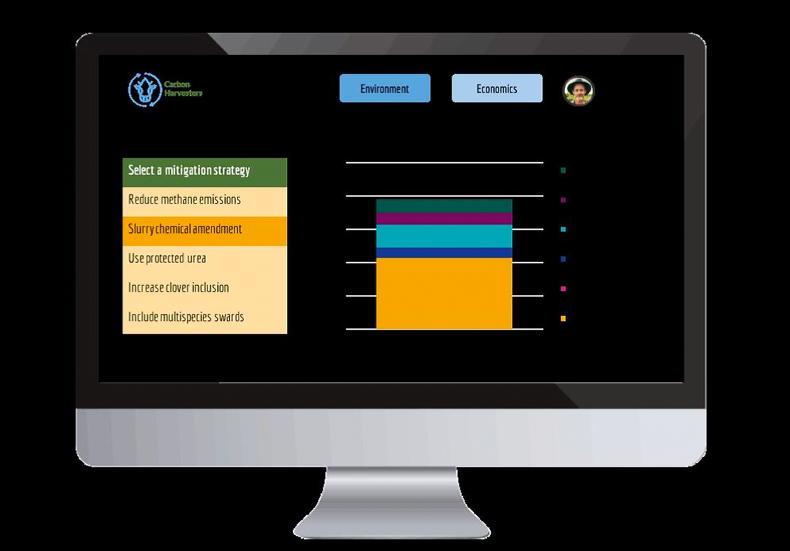
Carbon Harvesters platform.
Carbon Harvesters is an agritech startup that allows farmers to achieve their climate goals by facilitating the decarbonisation strategies of their farms. The platform is initially aimed at dairy farmers.
The platform quantifies the farm’s emissions on a fortnightly basis through an algorithm which incorporates multiple sources of data including milk production information, satellite spectrometry, farm records and field data.
The results are communicated to the farmer through a mobile app and desktop-based platform. On top of that, the algorithm contains the environmental and economic impacts that climate mitigation strategies would have on the farm.
These strategies are coded as a toolbox, so farmers will be able to quantify the farm-specific impacts on emissions that these will have if implemented.
Data
The platform isn’t commercially available yet and is still in the testing stage. Speaking to the Irish Farmers Journal, Alejandro explains that the algorithm which forms the baseline of this platform is highly complex, dynamic and detailed. The platform presents this data in an easy-to-understand form.
Multiple sources of farm-specific data are also inputted into the platform including the number of cows on a farm, fertiliser type, slurry management strategy, feed type and volume etc. Once farm emissions are calculated, the platform then gives suggestions on how to cut down on these emissions. For example, Alejandro says that switching feed type could be one of these strategies.
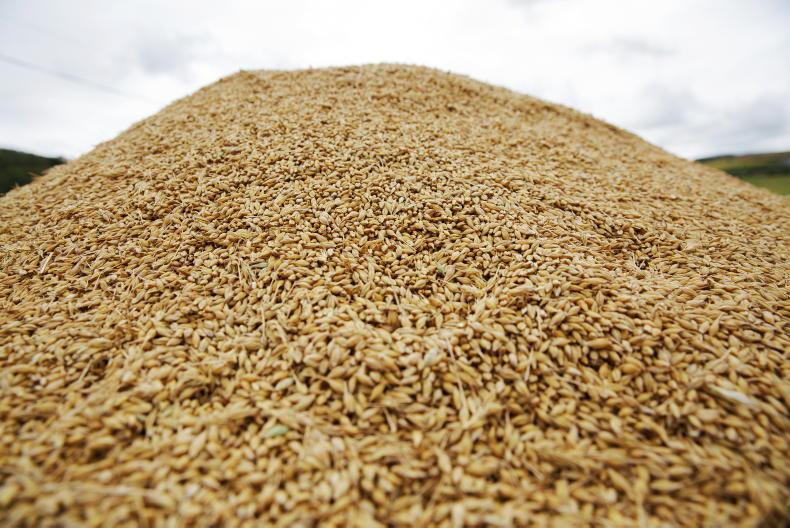
One kilogram of locally grown dry barley accounts for just 0.36kg CO2, whereas 1kg of dry soya bean meal imported from South America accounts for 11.65kg CO2.
He says that soya meal imported from South America and used in dairy diets carries an emission rating of 11.65kg CO2/kg of dry meal, whereas locally produced barley, for example, carries an emission rating of just 0.36kg CO2/kg of dry product. He acknowledged the difference in protein content but this serves as a good example.
Verification and trading
Alejandro has been testing his platform on three dairy farms and within the first six months he helped these farmers reduce 810t of CO2.
He says the next step is to work with a certification body to verify these emission reductions and he believes that, in the future, farmers will be able to trade this as “credits” on either voluntary or Emissions Trading System (ETS) carbon markets.
Passion
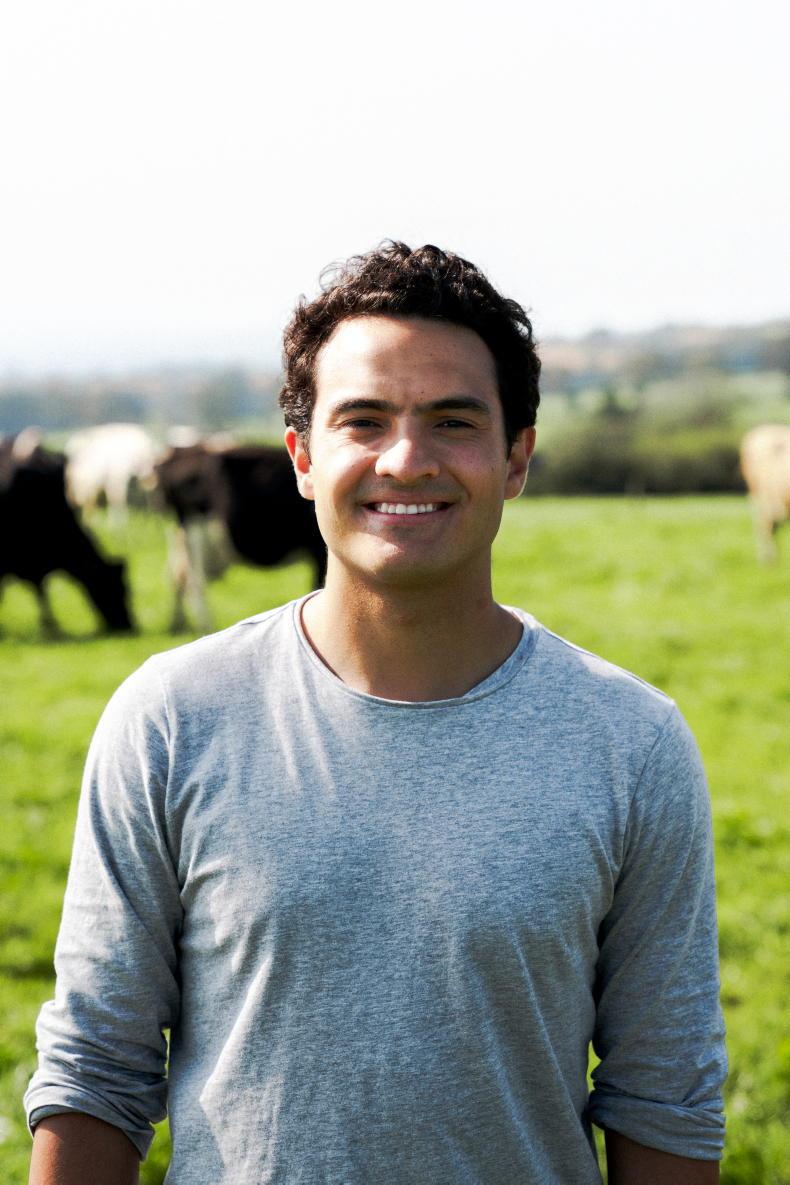
Alejandro Vergara.
Alejandro was born and raised in Ecuador.
When he was 18, he left the country to pursue studies in petroleum engineering in the US.
However, within six months, he decided to change majors to environmental engineering after completing two masters in sustainability in Spain and Sweden.
He came to UCD in Ireland to start a PhD project called Farm4More, which is a joint project between the School of Biosystems and Food Engineering and the School of Agriculture and Food Science. The project is co-funded by the EU, through the LIFE programme and the Department of the Environment, Climate and
Communications.
The project focuses on the development of climate mitigation strategies, including the development of grass silage biorefineries.
He now also works in the Science Foundation Ireland-funded project called Farm Zero C. This project involves a consortium of parties such as Carbery, BiOrbic Bioeconomy SFI research centre, Teagasc, UCD, MTU, and TCD.
The objective of the project is to develop holistic techno-economically feasible mitigation strategies to achieve the production of net-zero carbon milk.
Name: Carbon Harvesters.Location: Dublin. Founded: 2021. 2021 Innovation award: Winner of the Young Innovator of the Year Award.
Carbon has been one of the buzzwords of 2021. From carbon emissions to sequestration to credits, this area continues to gain attention.
Farmers have been to the forefront of the carbon debate and have long argued that their positive contribution to the challenge of carbon has been ignored.
One entrepreneur is aiming to change that by giving the power to measure, verify and monetise emission reduction strategies through a new online platform.
PhD student Alejandro Vergara picked up the Young Innovator of the Year Award at this year’s Innovation Arena for his Carbon Harvesters platform.
Platform

Carbon Harvesters platform.
Carbon Harvesters is an agritech startup that allows farmers to achieve their climate goals by facilitating the decarbonisation strategies of their farms. The platform is initially aimed at dairy farmers.
The platform quantifies the farm’s emissions on a fortnightly basis through an algorithm which incorporates multiple sources of data including milk production information, satellite spectrometry, farm records and field data.
The results are communicated to the farmer through a mobile app and desktop-based platform. On top of that, the algorithm contains the environmental and economic impacts that climate mitigation strategies would have on the farm.
These strategies are coded as a toolbox, so farmers will be able to quantify the farm-specific impacts on emissions that these will have if implemented.
Data
The platform isn’t commercially available yet and is still in the testing stage. Speaking to the Irish Farmers Journal, Alejandro explains that the algorithm which forms the baseline of this platform is highly complex, dynamic and detailed. The platform presents this data in an easy-to-understand form.
Multiple sources of farm-specific data are also inputted into the platform including the number of cows on a farm, fertiliser type, slurry management strategy, feed type and volume etc. Once farm emissions are calculated, the platform then gives suggestions on how to cut down on these emissions. For example, Alejandro says that switching feed type could be one of these strategies.

One kilogram of locally grown dry barley accounts for just 0.36kg CO2, whereas 1kg of dry soya bean meal imported from South America accounts for 11.65kg CO2.
He says that soya meal imported from South America and used in dairy diets carries an emission rating of 11.65kg CO2/kg of dry meal, whereas locally produced barley, for example, carries an emission rating of just 0.36kg CO2/kg of dry product. He acknowledged the difference in protein content but this serves as a good example.
Verification and trading
Alejandro has been testing his platform on three dairy farms and within the first six months he helped these farmers reduce 810t of CO2.
He says the next step is to work with a certification body to verify these emission reductions and he believes that, in the future, farmers will be able to trade this as “credits” on either voluntary or Emissions Trading System (ETS) carbon markets.
Passion

Alejandro Vergara.
Alejandro was born and raised in Ecuador.
When he was 18, he left the country to pursue studies in petroleum engineering in the US.
However, within six months, he decided to change majors to environmental engineering after completing two masters in sustainability in Spain and Sweden.
He came to UCD in Ireland to start a PhD project called Farm4More, which is a joint project between the School of Biosystems and Food Engineering and the School of Agriculture and Food Science. The project is co-funded by the EU, through the LIFE programme and the Department of the Environment, Climate and
Communications.
The project focuses on the development of climate mitigation strategies, including the development of grass silage biorefineries.
He now also works in the Science Foundation Ireland-funded project called Farm Zero C. This project involves a consortium of parties such as Carbery, BiOrbic Bioeconomy SFI research centre, Teagasc, UCD, MTU, and TCD.
The objective of the project is to develop holistic techno-economically feasible mitigation strategies to achieve the production of net-zero carbon milk.
Name: Carbon Harvesters.Location: Dublin. Founded: 2021. 2021 Innovation award: Winner of the Young Innovator of the Year Award.








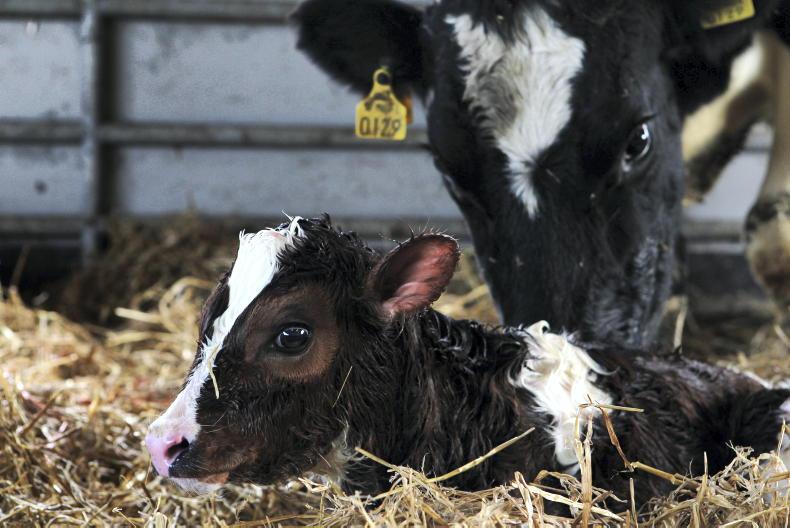

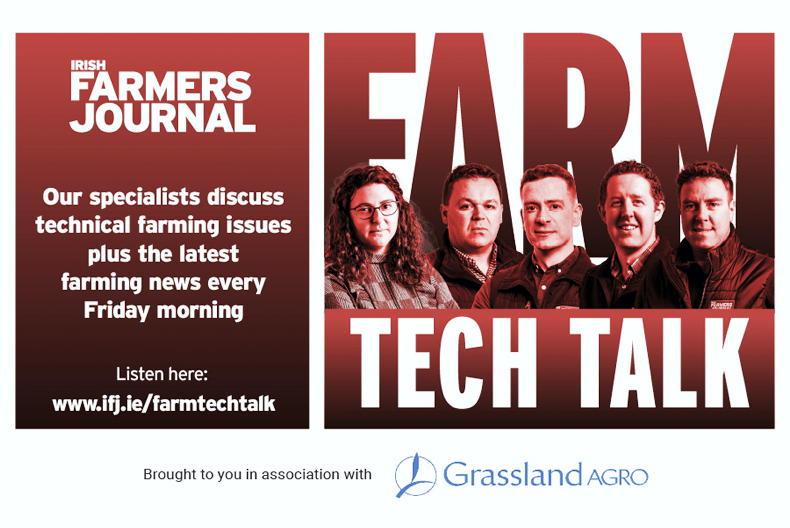
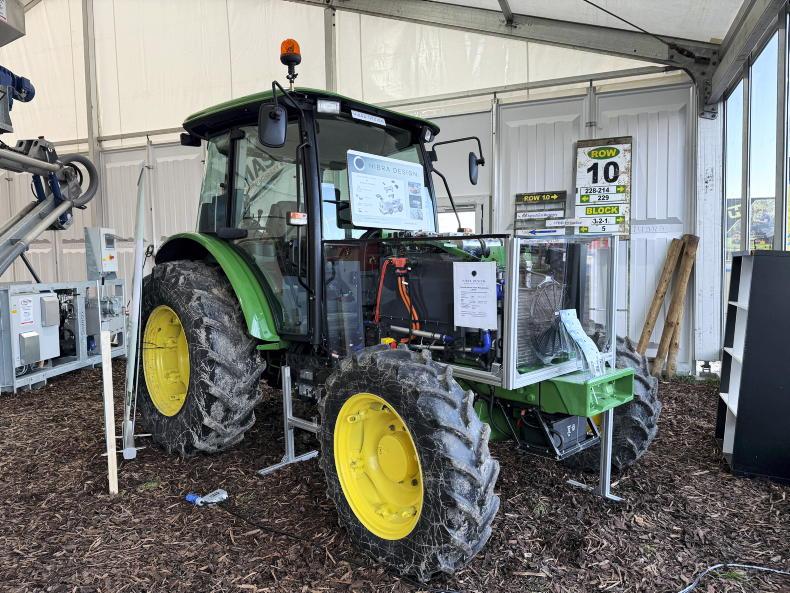
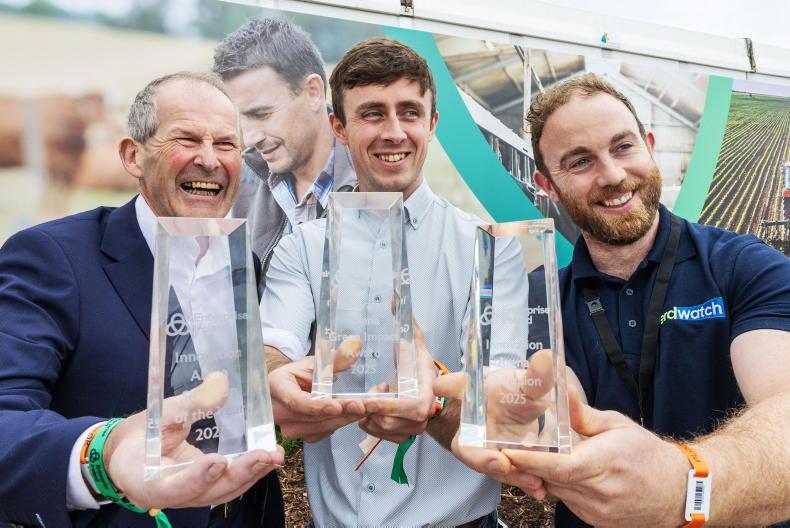
SHARING OPTIONS